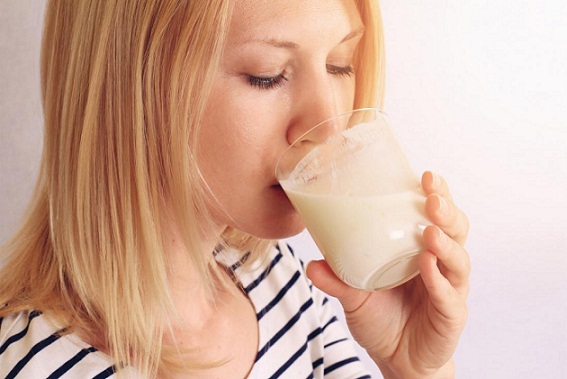Probiotics & Eczema
How Probiotics Can Help With Eczema
Eczema is a skin condition. Certain probiotic strains are showing promise to help treat this disease or minimize the effects of this disease. The human body contains trillions of living micro organisms – both good and bad. Probiotics are the good bacteria which are naturally present in the digestive system, mouth, and other parts of the body.
Early findings from recent studies suggest that probiotics can promote health in some other ways, apart from helping maintain a good digestion. Probiotics can help with eczema by boosting the immune system (eczema is triggered as a defective immune response).
Research Findings For Probiotics & Eczema
Multiple research studies conducted to understand the effects probiotics have on people with eczema. Early findings from some of the studies show that there could be a connection between the two. However, there are some other studies that suggest that probiotics might have no more than a placebo effect on eczema.
A 2010 update based on laboratory and clinical data concluded that no recommendations could be made after assessing systemic reviews and meta-analyses of a potential correlation between probiotics and eczema relief.
The research showed skewed results because the meta-analyses and systemic reviews combined different types of probiotic bacteria into the same study. Therefore, it became difficult to identify particular bacteria strains based on the result.
A report published in the American Journal of Clinical Dermatology suggested that probiotics might be helpful in treating and preventing atopic dermatitis which is the most common type of eczema.
There is currently no clear scientific finding on the effects of probiotics on eczema. However, there have been no conclusions made towards any adverse effects of probiotics either. Further research is necessary to conclude whether probiotics can help to alleviate eczema symptoms or not.
However, there have been studies which showed that people with eczema (especially children) have a relatively poor gut health compared to others who do not have eczema.
Probiotics and Eczema
Key factors in the development of eczema include inflammation and immune dysfunction. Probiotics help in boosting immunity that in turn lowers the risk of inflammation.
Studies show that out of the common 400 strains of probiotic bacteria, there are only two strains that are of help against eczema. Lactobacillus rhamnosus and Bifidobacteria are both helpful in preventing and treating eczema. However, research is still in its early stages and more evidence is required.
Dermatitis is known to worsen due to environmental factors and irritants. However, the underlying cause is a poor immune system. A faulty immune response prompts the skin to become dry, inflamed and cracked. Probiotics help in regulating the immune system.
Both good and bad bacteria are present in the human body. A healthy balance between the two is critical to a good digestive system. Immunity can be boosted only when food gets digested properly with adequate absorption of nutrition and nourishment.
Probiotics are known to increase good bacteria in the gut and restore a healthy balance in the body. This plays an important role in improving immunity.
A strong immune system can combat faulty immune response to environment triggers and other irritants. People believe that probiotics can make their immune system stronger by maintaining a healthy bacteria balance in their body.
Children with Eczema
Children are more vulnerable to eczema and dermatitis as their immune system is in the developmental stage. Skin conditions are rampant among children. Medical experts claim that children simply grow out of it with age and time.
Research on the use of probiotics and children with eczema is limited. However, research published in the British Journal of Nutrition found that pregnant women who took probiotics reduced the risk of eczema in their babies. Are you looking to purchase probiotics? See our dna shift probiotics reviews here.
How to Include Probiotics in Your Diet?
It is important to take things slow with any dietary changes. Probiotics have no known adverse complications. However, it is important that you run dietary changes by your doctor if you are prone to allergies or are currently ill.
There are many different types of bacteria strains that are labeled as probiotics. However, only strains of Lactobacillus and Bifidobacterium are helpful in eczema and other skin conditions.
There are a number of natural sources for these bacteria. Lactobacillus bacteria is found in fermented food and yogurt.
This bacterium has other benefits in terms of aiding lactose digestion and easing diarrhea. Bifidobacterium is known to help with irritable bowel syndrome and is found in yogurt and other dairy products.
It is best to add multiple probiotic-rich foods in your diet to acquire complete benefits from different strains of probiotic bacteria. Kefir, kombucha, tempeh, and cultured vegetables such as kimchi and sauerkraut are excellent probiotic sources.
Other natural sources include dark chocolate, apple cider vinegar, and yogurt. You can also add different types of cheese to your diet such as gouda, parmesan, Swiss, and cheddar.
A probiotic food will only work when the bacteria are living. They need to multiply in your body to promote good health. These foods should be eaten raw. Always check the expiry label on a store bought product.
You can make it easy by using over the counter probiotic supplements. However, make sure that you discuss this with your doctor. All supplements might not have the necessary strains required for eczema. Read the label carefully to make sure it has strains of Lactobacillus and Bifidobacterium.
Precautions
Your first choice should always be a natural source. However, supplements are also considered safe with no adverse effects. Make sure you eat the pill early morning on an empty stomach to prevent any complications. Your gut is most active in the morning right after a meal.
You may experience mild discomfort and irritable bowel when you switch to probiotic supplements. Upset stomach, gas, diarrhea and heartburn are common. It is best to start with a low dosage and gradually work your way up. Dosage in probiotic supplements is measured by CFU or colony forming units.
The Truth
Probiotics are clearly linked to improving your health in general, and gut health in particular. However, more research is required to ascertain any significant benefits of probiotics in relieving eczema symptoms.
In any case, studies have not shown any evidence that eating probiotic rich foods or supplements might be harmful to people with eczema. On the contrary, probiotics have only been linked to good health, hormone regulation, balanced gut microbiome, and better immune system.




